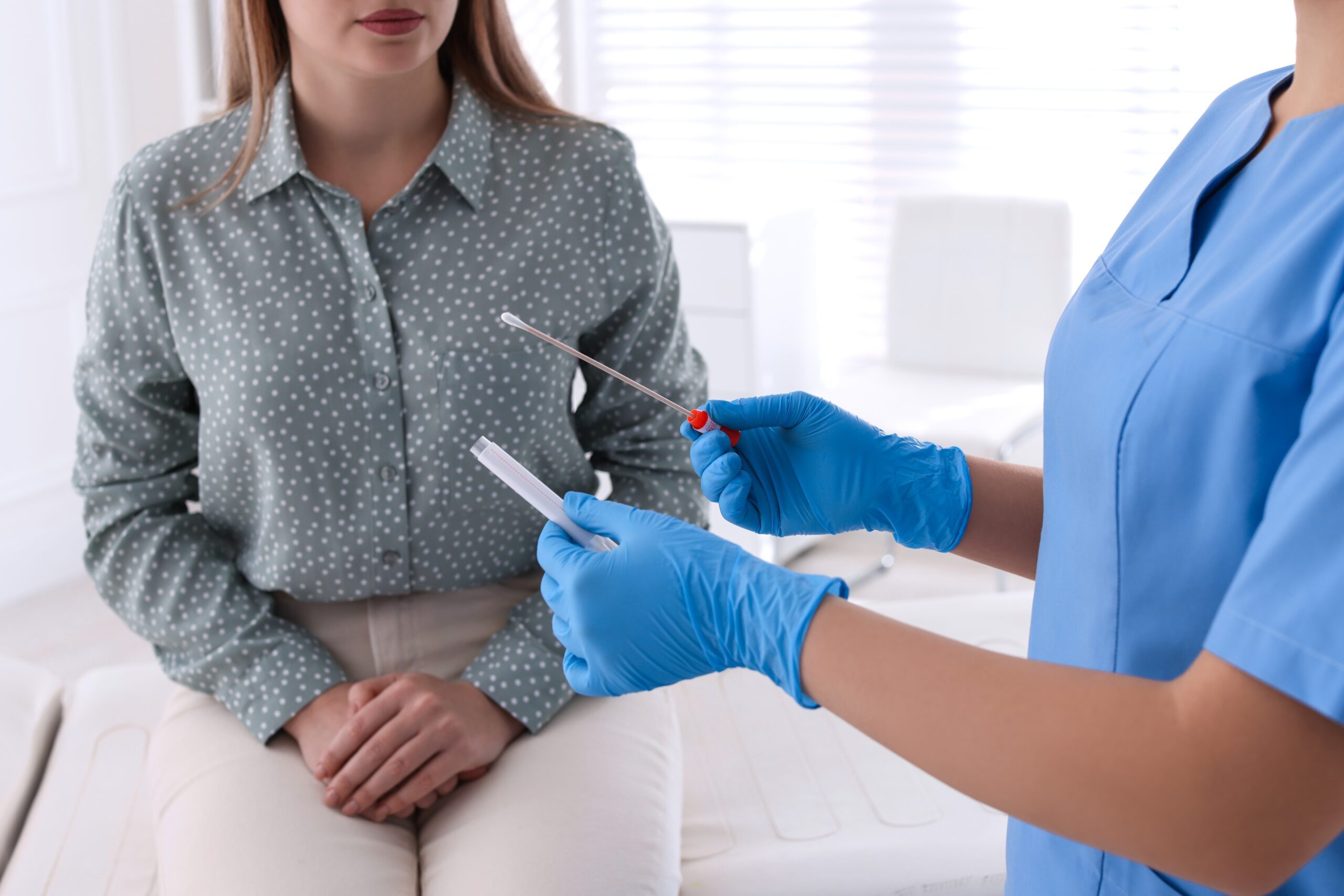Feeling a bit nervous about your testing appointment? That’s normal. Let’s demystify the process by outlining how to prepare and what will happen during your visit.
Before Your STD Test – Preparation
The good news is that in most cases, STD tests don’t require much special preparation. You don’t need to fast or do anything extreme. However, there are a few simple guidelines to follow to ensure the most accurate results:
● Avoid urinating right before certain tests: If you’re going to give a urine sample for chlamydia and gonorrhea, try not to urinate for at least 1-2 hours before your test . A fuller bladder with first-catch urine (the beginning of your stream) yields a better sample for detecting bacteria. If you just peed moments before arriving, you might be asked to wait a little while before collecting your sample.
● Don’t douche or use vaginal creams: For women, avoid any douching, vaginal suppositories, or creams in the day or two leading up to a pelvic exam for STD testing . These products can wash away or obscure signs of infection. It’s best to let your body’s normal fluids be present for the exam. Similarly, avoid putting on any vaginal deodorants or powders.
● Pause new medications if advised: If you’re currently taking antibiotics for some reason, let the clinic know. An ongoing antibiotic could potentially affect STD test results (for example, it might reduce bacteria and lead to a false negative for chlamydia/gonorrhea). In some cases, a provider might ask you to finish any antibiotic course and then test, or vice versa. In general, do not start taking antibiotics to “self-treat” an STD before a test, as this could mask the infection. It’s better to get the test first. Also, avoid using antiseptic creams on any sores before you get them swabbed.
● Schedule smartly for women: If you’re getting a Pap smear or pelvic exam for STD testing, try not to schedule it during your menstrual period. Light menstruation is often okay for a test, but heavy bleeding can interfere with results. A day in the middle of your cycle is usually ideal. But if you have symptoms that need checking, don’t delay just because of your period – the clinic can often work around it or have you come in as soon as it’s over.
Aside from these, there isn’t much else you need to do. You do not need to “study” for an STD test – just show up with a willingness to take care of yourself. If you have a list of questions or things that have been worrying you (e.g., a timeline of a potential exposure), you might jot those down to discuss with the nurse or counselor.
During Your STD Testing Visit – What to Expect:
Walking into an STD testing site might feel intimidating, but the process is usually straightforward and often faster than a typical doctor’s appointment. Here’s what generally happens:
● Checking in: At most clinics (like Health Stop STL or the St. Louis County clinic), you’ll check in at reception. You might fill out a short form about your basic information and possibly your sexual history (number of partners, types of sex, contraception use, etc.). This isn’t to pry – it’s to help the providers know which tests you may need. Remember, at free clinics you usually do not need to show an ID or proof of insurance. They’ll assign you a client number or code. Everything is confidential.
● Discussion and counseling: A healthcare provider (nurse, counselor, or doctor) will speak with you in a private room. They will typically review your sexual health history and ask if you have any symptoms. Be honest with them – they are professionals and not there to judge. Common questions include when you last had sex, if it was with a new partner, if it was protected or unprotected, any symptoms like discharge or pain, and if you have any specific concerns. This conversation guides which tests you’ll get. For instance, if you mention unprotected oral sex, they might add a throat swab test. If you report symptoms, they may do an exam. This is also a great time to ask any questions you have about STDs. Don’t hesitate to clarify what tests they are doing or why. The staff will explain each test if you’re curious.
● Collecting samples: Next, you’ll provide the samples for testing. Depending on what was discussed, you might do one or more of the following: pee in a cup, get your blood drawn, have a physical examination with swabs, or even an oral swab for HIV. For urine, you’ll be given a sterile cup and shown to a restroom. Aim to catch the first part of your urine stream if possible (they often tell you this in instructions). For blood tests, a small needle prick on your finger or drawing from your arm will be done – it’s quick and relatively painless. If you need throat or rectal swabs (for oral/anal gonorrhea or chlamydia testing), the nurse might do it or ask if you’re comfortable doing it yourself (self-swabbing is done at some clinics for comfort). For women getting a pelvic exam, you’ll have a brief exam similar to a gynecologist visit where the provider uses a speculum to look at the cervix and swab for Pap/STD tests. This might feel a little pressure but shouldn’t be painful; it’s over in a minute or two. If you have any genital symptoms (sores, rashes, discharge), the clinician will examine those areas. They might swab a sore or take a sample of discharge for immediate microscope examination (for things like trichomoniasis or yeast). All of this is typically done in a matter of minutes. The staff does these tests all day long, so they will keep you as comfortable as possible.
After the tests – Results and Follow-up
Many STD tests are not instant, except HIV rapid tests and maybe a rapid syphilis test. For example, your urine and swabs need to go to a lab. So the clinic will explain how you’ll get your results. Often, results for most STDs are ready in about 5 to 7 business days. Rapid HIV results, if done, will be given to you before you leave (in 15 minutes or so). Some clinics will only call you if something is positive, while others might have you come back for a consultation. If privacy by phone is an issue (a shared phone line), let them know so they can arrange alternative communication.
In the case of a positive result, don’t panic. Virtually all STDs are treatable, and many are curable. The clinic will either provide treatment (for things like chlamydia, gonorrhea, syphilis, etc., they often can give antibiotics on the spot or a prescription) or will refer you to a treatment provider. For HIV, a positive test will be confirmed with a follow-up lab test, and then the staff will connect you to specialized HIV care and support. St. Louis has excellent resources for HIV treatment, and starting medication early will keep you healthy. The clinic staff can also discuss notifying partners – they can help you with that process confidentially so your partners get treated too (you don’t have to do it all on your own).
Emotionally, you can expect to feel relieved once you’ve done the tests – many people say the worry before testing is the worst part, and once it’s done, they feel empowered for taking action. If it’s your first time, you might be surprised at how quick and routine everything feels. Clinics like Health Stop STL pride themselves on being friendly and nonjudgmental. Your privacy is protected by law – your test results are confidential medical information. For minors in Missouri, you can consent to STD testing and treatment without a parent, and those results aren’t shared with parents unless you choose to.
Take Charge of Your Sexual Health
It might seem daunting, but remember that getting tested is normal and responsible. Our local health infrastructure – from Health Stop STL’s free clinic to county services and nonprofit organizations – makes it convenient to access tests and treatment. By taking advantage of these resources, you’re looking out for yourself and your partners.
A few actionable takeaways we want to leave you with:
● Make a testing plan: Think about your own situation and risk factors. If you’ve never been tested, consider scheduling a full STD panel now. If it’s been a year or more since your last test and you’ve had new partners, it’s time for a check-up. Some people make it a habit to test every 6 or 12 months, such as every birthday or every New Year – whatever helps you remember.
● Know your go-to clinics: Keep the information for a convenient clinic handy. For example, you might bookmark the Health Stop STL website or save the address (1520 Market St.) and phone number. This way, whenever you need testing or have a scare, you know exactly where to go or whom to call. Having a plan reduces the friction of “where should I even go?” when the moment arises.
● Don’t wait for symptoms: Most STDs can be sneaky. Relying on symptoms is not a good strategy – by the time symptoms appear, an infection may have already been present for a while. Regular screening catches issues early, often before symptoms, which is better for your health. For instance, you won’t know you have chlamydia (in most cases) unless you test, and untreated chlamydia can cause fertility problems down the line. Testing is preventive care.
● Encourage your partners: STD testing isn’t just an individual responsibility; it’s something partners can do together. It can actually be a bonding experience to both get tested and share results with each other. It builds trust and communication in your relationship. St. Louis clinics will welcome couples coming in for testing, and some might even offer dual counseling sessions. If you’re entering a new relationship, consider doing a round of tests together so you both are on the same page.
Finally, pat yourself on the back for educating yourself about STD tests. By understanding the different types of tests – from HIV to herpes – you’ve removed a lot of the fear of the unknown. Now you can focus on staying healthy. Knowledge is power, and that’s especially true when it comes to sexual health. With regular testing, you can catch anything early, get treated, and most importantly, have peace of mind. St. Louis has your back with resources and professionals ready to help. So take charge, get tested as needed, and keep the conversation about sexual health open. You deserve a healthy, worry-free sex life, and proactive STD testing is an essential part of that. Stay safe and healthy!


